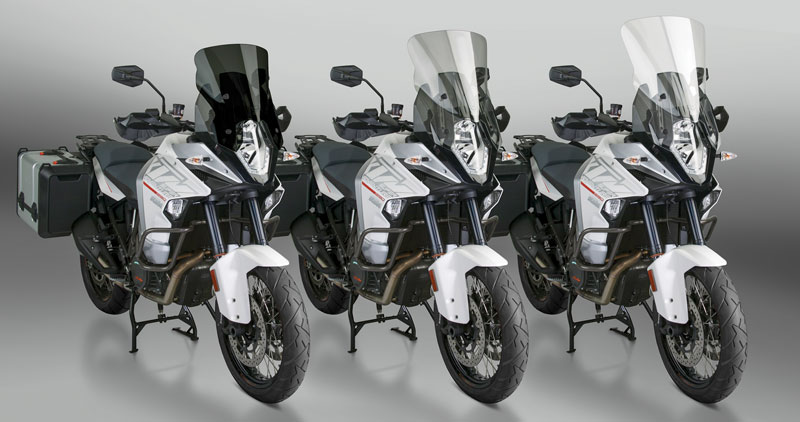
When you spend a lot of money on an accessory, part of the enjoyment is seeing it on your bike. But if that accessory is a windshield, you want to see right through it. Unfortunately windshields, both the aftermarket and the OE kind, are right out there in front of you where they’re vulnerable to dirt, rocks, bugs and other damage that can leave them battle-scarred after only a few riding seasons. There’s no way to beat bad luck, but according to National Cycle’s Paul Gomez you can tilt the odds in your favor with regular care and cleaning.
National Cycle uses two materials for its shields. The first is a hard-coated polycarbonate with either FMR (formable mar resistance) or National Cycle’s proprietary Quantum hardcoating. Polycarbonate is more impact resistant than the other material, acrylic. In its plain form acrylic is brittle and cracks easily, so National Cycle uses a high-impact acrylic that combines good optics with more resistance to damage.
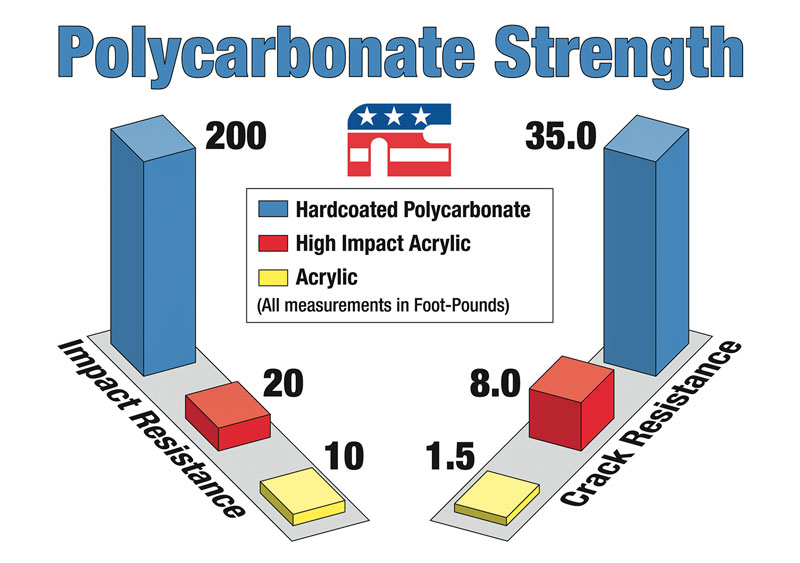
“With acrylic you want to be very careful not to use any type of abrasive cleaners, because it scratches easily,” says Gomez. “We have a special cleaner for acrylic, or you can use warm soapy water.” Any commercial cleaner that says it’s made for use with plastics is probably fine, too, but avoid cleaners with petroleum products, ammonia or kerosene because these can all damage hardcoating. The same caveats about abrasive cleaners and harsh cleaners apply to hardcoated polycarbonate, too; although the hardcoating is more resistant to abrasion, you can’t grind away at it forever.
Another product to avoid on polycarbonate and acrylic windshields is Rain-X. “Rain-X and plastics do not play well together,” Gomez warns. Instead, he says, consider using National Cycle’s own Rain Zip coating, which does to plastic the same thing Rain-X does with glass, but without harming the underlying material. “It also works well on helmet visors,” he adds.
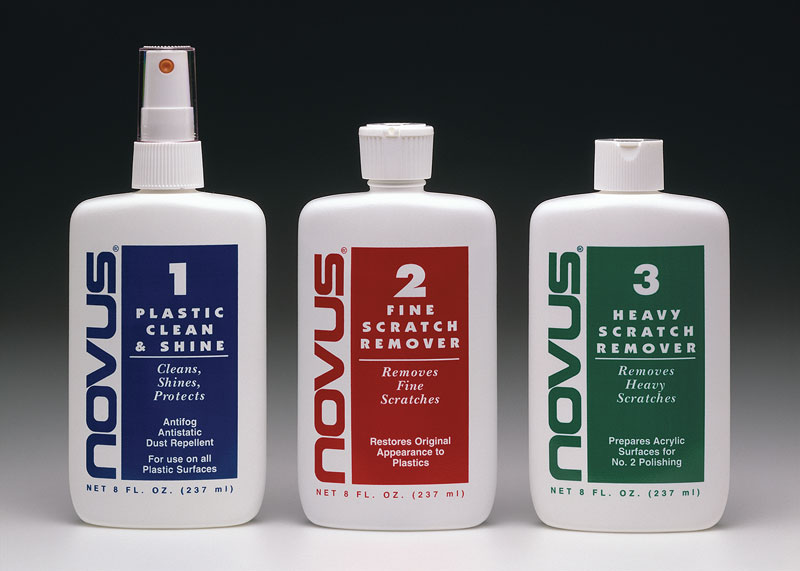
Whatever you use to clean your windshield, start off by soaking paper or cloth towels in water and laying them on the windshield. Leave them there for 15 minutes or so to soak through and soften the dried-on bug guts and dirt, then scrape off the stubborn bits with your fingernail––don’t wipe them off with a rag or you might scratch the very surface you’re trying so hard to protect.
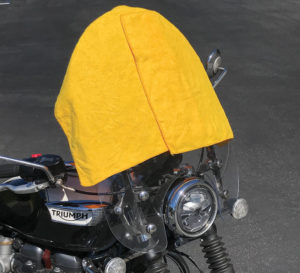
Use a cleaning cloth made of microfiber, terrycloth or cotton flannel, and make doubly sure it’s clean. Paper towels are too abrasive, and shop rags, even though they look clean, can pick up metal chips and other scratchy stuff that remains even after a thorough washing. A clean cotton T-shirt is the last-resort choice, but make sure it just came out of the washing machine.
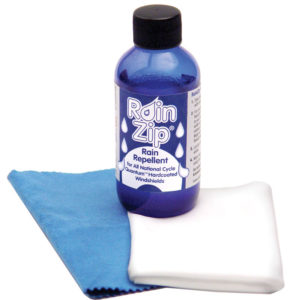
Plastic cleaners are designed to work in cool temperatures so park your bike in the shade before you start. Whether you’re using soapy water or a plastic cleaner, apply it gently—you don’t need to apply much pressure—and turn the cloth frequently to carry picked-up grit away from the surface. Rinse the cloth often, too, to get the small stuff out.
To remove scratches Gomez recommends a plastic polish like Novus. “But it’s a case-by-case thing,” he says, “depending on how deep the scratch is. Novus is low-abrasive, but the trick is to remove the scratch without going through the hardcoat.” Crack repair is another iffy area. In some cases you can stop a crack from spreading by drilling a small hole at the end, but first check the manufacturer’s warranty to see if cracks are covered. You might be better off swapping for a new windshield than making your old one worse.
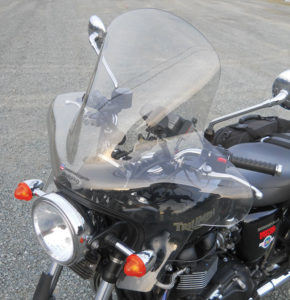
The last step in a thorough cleaning is applying a coat of protectant such as non-abrasive spray wax. This acts as an extra layer of protection against dirt, and makes subsequent cleanings easier by preventing the goo from sticking to the surface of the windshield. Use the same kind of towel or cloth you used to apply the cleaner, but make sure it’s clean and unused since the last laundry day or you could just end up back where you started.


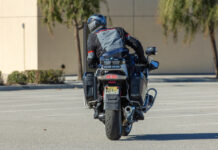





Keeping your bike in a garage or carport will extend the life of the windshield, too. The sun has a damaging effect on plastic.
This is very true. It’s best also, to avoid wiping the windscreen as much as possible
Always wipe in straight lines. Circular motion will cause terrible glare problems.